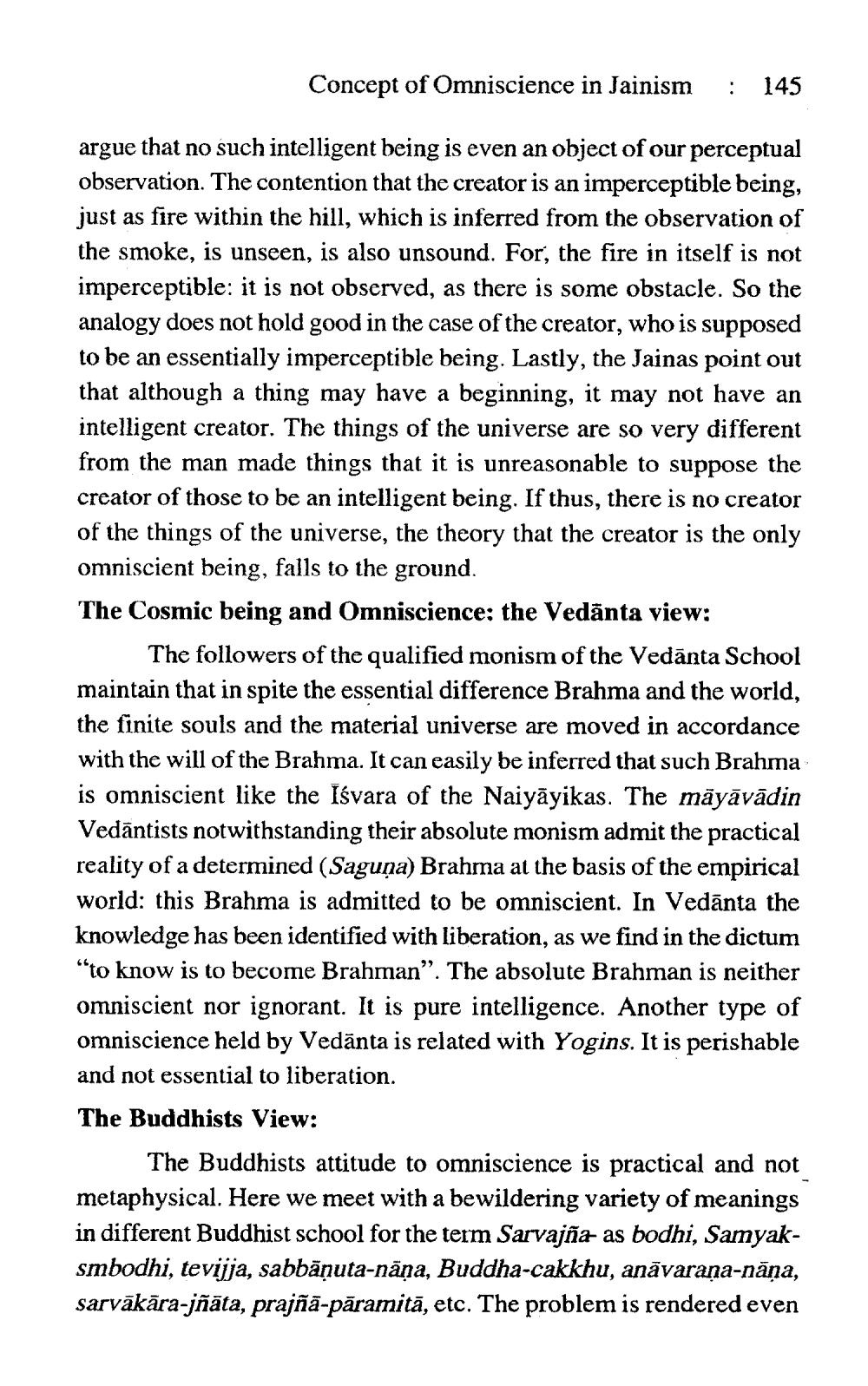________________
Concept of Omniscience in Jainism
:
145
argue that no such intelligent being is even an object of our perceptual observation. The contention that the creator is an imperceptible being, just as fire within the hill, which is inferred from the observation of the smoke, is unseen, is also unsound. For, the fire in itself is not imperceptible: it is not observed, as there is some obstacle. So the analogy does not hold good in the case of the creator, who is supposed to be an essentially imperceptible being. Lastly, the Jainas point out that although a thing may have a beginning, it may not have an intelligent creator. The things of the universe are so very different from the man made things that it is unreasonable to suppose the creator of those to be an intelligent being. If thus, there is no creator of the things of the universe, the theory that the creator is the only omniscient being, falls to the ground. The Cosmic being and Omniscience: the Vedānta view:
The followers of the qualified monism of the Vedānta School maintain that in spite the essential difference Brahma and the world, the finite souls and the material universe are moved in accordance with the will of the Brahma. It can easily be inferred that such Brahma is omniscient like the Isvara of the Naiyāyikas. The māyāvādin Vedāntists notwithstanding their absolute monism admit the practical reality of a determined (Saguna) Brahma at the basis of the empirical world: this Brahma is admitted to be omniscient. In Vedānta the knowledge has been identified with liberation, as we find in the dictum "to know is to become Brahman”. The absolute Brahman is neither omniscient nor ignorant. It is pure intelligence. Another type of omniscience held by Vedānta is related with Yogins. It is perishable and not essential to liberation. The Buddhists View:
The Buddhists attitude to omniscience is practical and not metaphysical. Here we meet with a bewildering variety of meanings in different Buddhist school for the term Sarvajña as bodhi, Samyaksmbodhi, tevijja, sabbānuta-nāņa, Buddha-cakkhu, anāvarana-nāņa, sarvākāra-jñāta, prajñā-pāramitā, etc. The problem is rendered even




